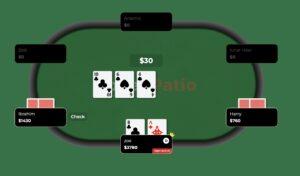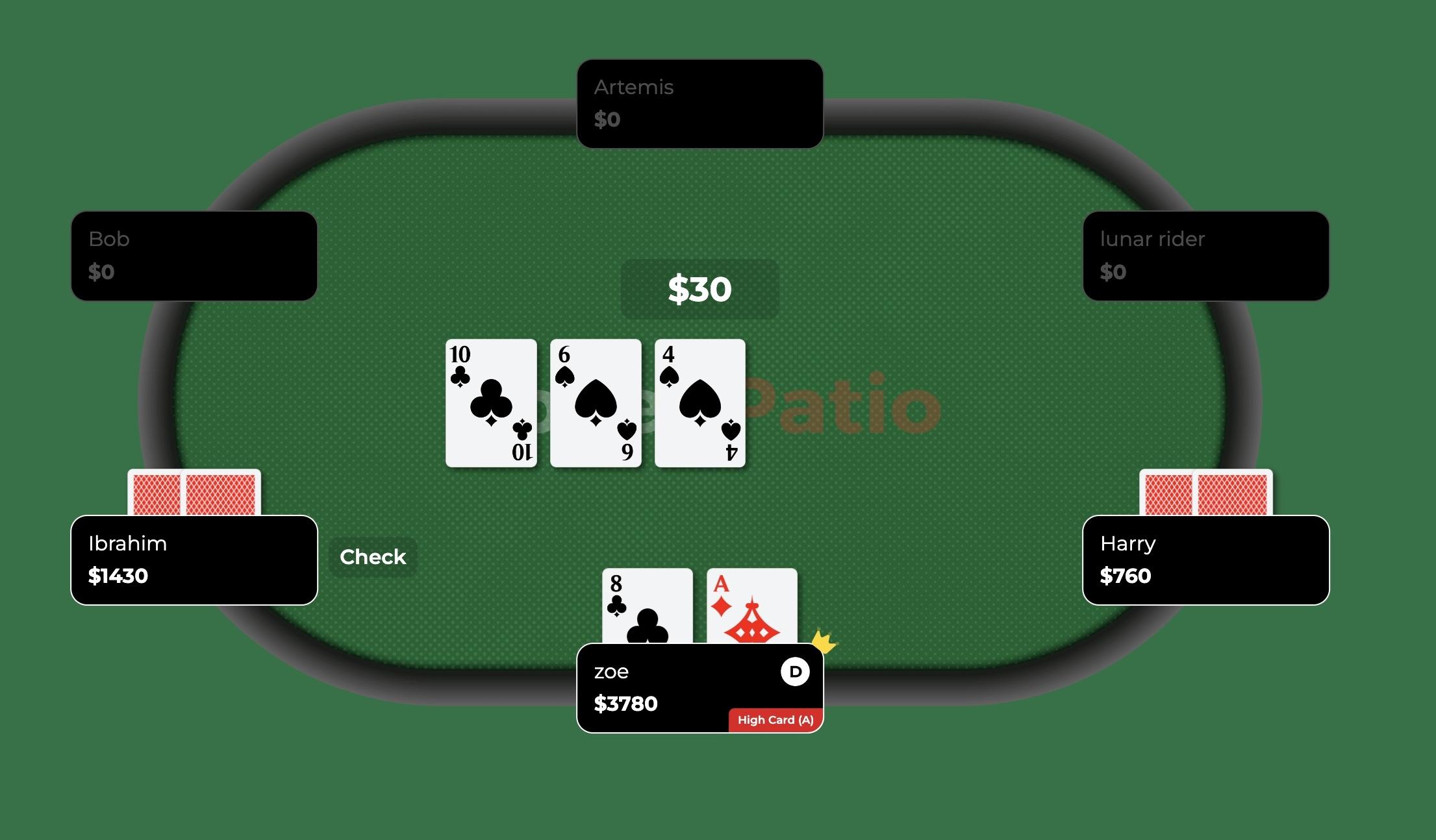Texas Hold’em is a popular poker card game. The origin and creator of the game is disputed, but the game was most likely created in the early 20th century and is marketed towards adults that enjoy games of chance. Using a standard deck of 52 cards, the game involves a dealer dealing each player 2 cards, and giving players multiple rounds to bet money on their chance of winning when combining their cards with a central pool of 5 more cards. The winning condition of each hand is to have the best poker hand of all players still in the game. Although this game has elements of both strategy and chance, whether a player is dealt a winning hand is entirely up to chance. However, the fun derived from this game is attempting to bend the rules of chance to win even when it’s not plausible. The fast-paced and dealer-directed procedures of the game combine with the game’s use of chance in order to create a game that keeps people playing, even when it is detrimental to them.
When I played Texas Hold’em for this critical play, I played an online version with some friends at pokerpatio.com and did not bet using real money. However, this game is typically played in person at casinos or at bars. As someone who is new to the game, the first aspect of the game that I noticed was how fast-paced it felt. In the online version, there was a small time bar indicating how much time I had left to decide whether to fold, call, or raise the bet. See a picture of this bar below. This mechanic was incredibly stressful. And although I have not played an in-person version of this game, I can imagine that it is similar. After doing some research, I found that it’s common to give players only 30 seconds to make a decision. This procedure had several concrete impacts during game play. First, it impaired my judgment when considering the rules of chance during the game. For example, when betting, I was rarely considering the probability that I actually ended up with a good hand. More often, I found myself thinking, “The cards that the dealer reveals later might give me a good hand…” and I would continue to play, even if my cards were bad. Already, this mechanic kept me playing much longer than I should have.

The second impact that the fast-paced nature of the game had was that it meant players gained and lost money very quickly. This meant that there was essentially no time to dwell on lost cash, and only feeling endorphins when you gain money. For example, when I played this game, I gained around $3000 on the second round of playing, before I understood the rules, just by chance. See a picture of this gain below. The probability of winning each hand quickly becomes a small hurdle in a much longer sequence of played-hands. And the money associated with winning and losing each hand also becomes smaller. Players begin to bet on bad hands because they can always “make it back later.”

In comparison with other games that use chance and probability, Texas Hold’em is unique in that it does have aspects of strategy. For example, the game of Slots is entirely chance-based. Players only make the decision to keep playing or not. In Texas Hold’em, players have the agency to stay in the game and bet varying amounts. These more complex rules give players to follow probability logic or to be influenced by their fellow players and their desire to win. Overall, this makes the run-time dynamics of the game more based on intuiting how to deceive other players and check whether you are being deceived, rather than focusing on probability. Again, this distraction from logic is dangerous because it keeps players playing. The fun of the game isn’t all from winning money; it comes from understanding what your fellow players are doing and why.
Overall, Texas Hold’em is made fun and engaging by a balance between strategy and chance. This balance is, in turn, made salient by the game’s face-paced nature. Because the procedures of the game move quickly, players must act fast and do not have time to accurately assess the strategy and randomness of the game. This can have unintended negative consequences when the adrenaline of the game keeps them playing for long periods of time, even when they are losing money. This mechanic makes the game a dangerous risk of addiction.



